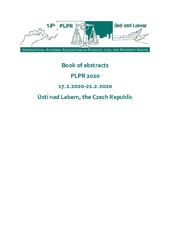Приказ основних података о документу
Urban megaprojects as instruments of urban development and governance
| dc.creator | Zeković, Slavka | |
| dc.date.accessioned | 2023-04-28T13:13:33Z | |
| dc.date.available | 2023-04-28T13:13:33Z | |
| dc.date.issued | 2020 | |
| dc.identifier.uri | http://plpr2020.ujep.cz/wp-content/uploads/2020/02/book_of_abstracts_PLPR2020.pdf | |
| dc.identifier.uri | http://raumplan.iaus.ac.rs/handle/123456789/812 | |
| dc.description.abstract | The paper explores the land-use planning and governance of the urban megaprojects (UMPs) as instruments of post-industrial urban development towards the real estate financialization, on the example of Belgrade Waterfront Project. Bearing in mind their substantial impacts UMPs often attract high-end market, public and political interests. UMPs are result of decision-making by different policy-makers and stakeholders that are market-derived and supported by different public and development policies. UMPs are increasingly becoming mighty instruments of smart urban transformation, city re-imaging and one of the key constituent structures of the smart city, i.e. the conversion of sustainable integrated urban development into the smart city concept. They are a product of high technology, extreme engineering, ICT, architectural design with the smart “iconic” and energy-efficient buildings. The paper emphasizes that UMPs are the strong instruments of global economic development in the smart cities, especially in real estate sector and hi-tech urban infrastructure. Here will be analyzed a global features of UMPs as well as key challenges (regulatory, institutional, financial, governance). Various aspects of UMPs make them extremely complex: huge size, sometimes unpredictable outcomes and diverse multi-scale impacts. Their implementation is often accompanied by undesired conflicts in governance arena. The role of the UMPs in the development of smart cities is growing. The paper indicates a new phenomena -“zero-friction” society with the aim of global development relying on UMPs in the smart cities digital multiverse. It is emphasized that urban development are influenced by different approaches related to planning and governance system for the large development projects (UMPs). Complexity of UMPs require new approaches in decision-making, planning and governance. They should be based and adapted to the integrated, inclusive and sustainable perspectives. Some recommendations for the further research and improvement of UMPs governance in the cities, especially more innovative urban land tools, will be highlighted. | sr |
| dc.language.iso | en | sr |
| dc.publisher | Ústí nad Labem, Czech Republic : Faculty of Social and Economic Studies, Jan Evangelista Purkyně University | sr |
| dc.publisher | International Academic Association on Planning, Law and Property Rights (PLPR) | sr |
| dc.relation | info:eu-repo/grantAgreement/MESTD/inst-2020/200006/RS// | sr |
| dc.rights | openAccess | sr |
| dc.source | Book of abstracts -14th International Conference on Planning, Law and Property Rights "Post-industrial diamond", International Academic Association on Planning, Law and Property Rights, and Faculty of Social and Economic Studies, Jan Evangelista Purkyne University in Usti nad Labem, Czech Republic | sr |
| dc.subject | Urban mega-projects | sr |
| dc.subject | urban governance | sr |
| dc.subject | real estate financialization | sr |
| dc.subject | smart city | sr |
| dc.subject | innovative urban land tools | sr |
| dc.title | Urban megaprojects as instruments of urban development and governance | sr |
| dc.type | conferenceObject | sr |
| dc.rights.license | ARR | sr |
| dc.citation.spage | 236 | |
| dc.citation.rank | M34 | |
| dc.description.other | Editor: Lenka Slavikova | sr |
| dc.identifier.fulltext | http://raumplan.iaus.ac.rs/bitstream/id/3362/Urban_megaprojects-book_of_abstracts_PLPR2020.pdf | |
| dc.identifier.rcub | https://hdl.handle.net/21.15107/rcub_raumplan_812 | |
| dc.type.version | publishedVersion | sr |

